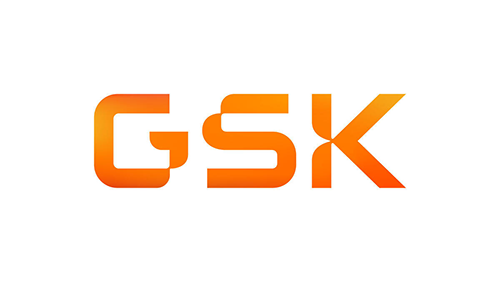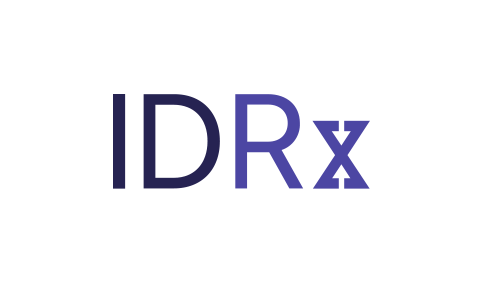IDRx Announces Updated Phase 1 Data from Ongoing Phase 1/1b StrateGIST 1 Trial of IDRX-42 in Advanced Gastrointestinal Stromal Tumors (GIST) at CTOS 2024
- IDRX-42 continues to demonstrate promising anti-tumor activity with a 29% ORR across all patients (median four prior lines of therapy) and a 53% objective response rate (ORR) in second-line patients
- Estimated median progression-free survival (PFS) for third-line patients was 12.9 months; estimated median PFS for fourth- or later-line patients without prior ripretinib at the recommended Phase 1b dose was 11.0 months; median PFS in second-line patients not yet reached
- Favorable safety profile with 8% dose reductions and no discontinuations due to TRAEs at recommended Phase 1b dose
- Second-line cohort in the Phase 1b portion of StrateGIST 1 nearly fully enrolled
- Aligned with the U.S. Food and Drug Administration (FDA) on trial design, dose, endpoints and statistical analysis for planned Phase 3 registrational study in second-line GIST
PLYMOUTH, Mass., November 14, 2024 – IDRX, Inc., a clinical-stage biopharmaceutical company dedicated to developing and commercializing precision therapeutics for the treatment of cancers with well-characterized biology and significant unmet medical need, today announced updated clinical data from StrateGIST 1, the company’s ongoing Phase 1/1b trial of IDRX-42 in patients with advanced gastrointestinal stromal tumors (GIST). These data continue to demonstrate promising anti-tumor activity of IDRX-42 in patients with advanced GIST and will be highlighted today in an oral presentation at the Connective Tissue Oncology Society (CTOS) 2024 Annual Meeting, being held November 13-16, in San Diego, CA.
IDRX-42 is an investigational oral, small molecule, tyrosine kinase inhibitor (TKI) designed to selectively target the most prevalent KIT mutations that either drive the growth, proliferation, and survival of tumor cells (activating mutations in exons 9 and 11), or confer resistance to currently available therapies (resistance mutations in exons 13 and 17).
“In patients living with GIST, the therapeutic potential of KIT targeted TKIs has been limited by drug resistance caused by an inability to target the spectrum of the most prevalent KIT mutations, and poor tolerability,” said Suzanne George, M.D., Chief, Division of Sarcoma at the Dana-Farber Cancer Institute. “These updated data from StrateGIST 1 are highly encouraging with respect to the clinical activity observed in later-line patients with a variety of KIT activating and resistance mutations. I am excited by the potential of IDRX-42, with its differentiated clinical profile demonstrated to date, to help meet this critical need for GIST patients.”
“We are particularly excited about the emerging durability data from StrateGIST 1. These data, together with the continued strengthening of response rate and tolerability data, underscore the potential for IDRX-42 to improve outcomes for GIST patients and support our plans to move IDRX-42 into late-phase development,” said Tim Clackson, Ph.D., Chief Executive Officer of IDRx. “With FDA alignment now in place, we plan to conduct StrateGIST 3, a randomized, Phase 3 registrational trial which will evaluate the efficacy and safety of IDRX-42 as compared to sunitinib in second-line GIST patients. We remain steadfast in our commitment to transform the lives of patients with GIST, including in early-line settings, where the standards of care have remained unchanged for almost 20 years and a significant unmet need remains.”
Presentation Highlights
- As of the data cut-off date of September 30, 2024, 89 patients have been treated with IDRX-42 in the Phase 1 portion of the ongoing StrateGIST 1 trial across dose cohorts ranging from 120 mg once daily (QD) to 1200 mg total daily dose (600 mg twice daily (BID)). All 89 patients had KIT-mutant GIST. 87 patients were evaluable for efficacy as of the data cut-off date. The two non-evaluable patients were recently enrolled and remain on treatment, awaiting their first post-baseline tumor assessment.
- While a maximum tolerated dose was not reached, dose escalation in the Phase 1 portion of the trial has been completed, and the Phase 1b dose confirmation portion of the trial has been initiated utilizing a dose of 300 mg in tablet formulation, which has comparable steady-state plasma exposure to a dose of 400 mg in capsule formulation.
- Patients were heavily pretreated overall, with a median of four prior lines of therapy.
- 17% (15/89) patients had received one prior line of therapy (IDRX-42 evaluated as second-line).
- 11% (10/89) patients had received two prior lines of therapy (IDRX-42 evaluated as third-line).
- 72% (64/89) patients had received three or more prior lines of therapy (IDRX-42 evaluated as ≥ fourth-line).
- 28% (25/89) received three or more prior lines of therapy that did not include ripretinib.
- As of the data cut-off date, 63% (56/89) of patients remained on study treatment, and the median duration of treatment was 6.6 months.
- The ORR by modified RECIST v1.1 in the total efficacy evaluable population was 29% (25/87) treated across all lines of therapy, including one complete response (CR) and 24 partial responses (PRs). Two of the PRs were awaiting confirmation at the time of the data cut.
- At the 400 mg capsule/300 mg tablet QD recommended Phase 1b dose (RP1bD), the ORR was 26% (10/38) in the total efficacy evaluable population.
- The ORR in second-line patients was 53% (8/15) including one CR and 7 PRs.
- At the RP1bD or below, the ORR was 50% (7/14) across second-line patients.
- In second-line patients (n=15), the 6-month PFS was 85%, and the median was not yet reached.
- The median PFS in third- or later-line patients both at the RP1bD (n=25) and across all doses (n=72) was 9.2 months.
- The median PFS in third-line patients overall (n=10) was 12.9 months.
- The median PFS in fourth- or later-line patients who had not previously received ripretinib (n=25) was 9.2 months, and at the RP1bD (n=10) was 11 months.
- IDRX-42 was generally well-tolerated and treatment-related adverse events (TRAEs) were mainly low grade at the RP1bD.
- The most frequently reported TRAEs (≥20%) were gastrointestinal symptoms (diarrhea, nausea, decreased appetite, vomiting, dysgeusia) and fatigue.
- An 8% dose reduction rate due to TRAEs was observed at RP1bD, with no TRAEs leading to dose discontinuation.
The Phase 1b portion of StrateGIST 1 commenced enrollment in May 2024 and includes a first-, second-, and two later-line cohorts. The second- and two later-line cohorts are nearly fully enrolled. IDRx has aligned with the FDA on fundamental elements of the trial design, dose, and statistical analysis for StrateGIST 3, a global, randomized, Phase 3 registrational trial which will evaluate IDRX-42 as a second-line therapy in patients diagnosed with metastatic and/or unresectable GIST with disease progression on, or intolerance to, imatinib, the current first-line standard of care for GIST patients.
Presentation Details
Title: The Novel KIT inhibitor IDRX-42 Shows Promising Activity in Second- and Later-Line Gastrointestinal Stromal Tumors (GIST): Results from a Phase 1 Trial (StrateGIST 1)
Presenter: Suzanne George, M.D.
Abstract Number: P 10
Presentation Type: Oral Abstract Session
Time: Thursday, November 14, 10:30 a.m. – 11:30 a.m. PST
Location: Harbor Ballroom, Manchester Grand Hyatt, San Diego, CA
About the StrateGIST 1 Study
StrateGIST 1 is an ongoing, open-label, first-in-human Phase 1/1b study designed to evaluate the safety, tolerability, pharmacokinetics, and preliminary anti-tumor activity of IDRX-42 in patients with metastatic and/or surgically unresectable GIST after progression on imatinib and other approved drugs. The study is currently enrolling patients with documented pathogenic mutation in KIT or any platelet-derived growth factor receptor alpha (PDGFRA) mutation (other than PDGFRA exon 18) at sites in the U.S., United Kingdom, Belgium, the Netherlands, France, Germany, Italy, Spain, South Korea, and China. The Phase 1b portion commenced enrollment in May 2024 and includes four exploratory cohorts based on defined lines of prior tyrosine kinase inhibitor therapy, including first-, second-, third- and later-line therapies.
About IDRX-42
IDRX-42 is an investigational oral, small molecule KIT tyrosine kinase inhibitor in clinical development as a monotherapy for the treatment of gastrointestinal stromal tumors (GIST). IDRX-42 is designed to selectively target the most prevalent forms of KIT mutations that either drive the initial growth, proliferation, and survival of tumor cells, or confer resistance to currently available therapies. In pre-clinical studies, IDRX-42 demonstrated superior anti-tumor activity as compared to imatinib, the current first-line of therapy, in tumors associated with both exon 9 and 11 KIT mutations. IDRX-42 was also shown in pre-clinical studies to have strong inhibition activity against the most prevalent KIT resistance mutations in exons 13 and 17, suggesting that IDRX-42 could prevent or substantially delay the emergence of such mutations. In xenograft models expressing secondary resistance mutations in KIT exon 13 or 17, IDRX-42 treatment resulted in potent and dose-dependent antitumor activity superior to the second-line standard of care agent, sunitinib. IDRX-42 is currently being evaluated in StrateGIST 1, a first-in-human Phase 1/1b trial. IDRX-42 has been granted Fast Track and Orphan Drug designations by the U.S. Food and Drug Administration for the treatment of GIST after disease progression on imatinib.
About IDRx
IDRx is a clinical-stage biopharmaceutical company dedicated to developing and commercializing precision therapeutics for the treatment of cancers with well-characterized biology and significant unmet medical need. IDRx aims to address the limitations of today’s precision cancer medicines with highly potent and selective targeted therapies to stop key tumor escape mechanisms and prolong patients’ response to therapy. IDRx’s lead program is IDRX-42, which is designed to selectively target the most prevalent forms of KIT mutations and has the potential to improve outcomes for gastrointestinal stromal tumor (GIST) patients as a first- or second-line therapy, where the standards of care have remained unchanged for almost 20 years and significant unmet need remains. Founded in 2021, IDRx’s leadership team has extensive experience in drug development and collectively has been involved in the discovery, development, and commercialization of more than 10 approved medicines. To learn more, please visit www.www.idrx.com and follow us on LinkedIn.
Contacts
Media:
1AB
Katie Engleman
katie@1abmedia.com
Investors:
1AB
Steve Klass
steve@1abmedia.com

